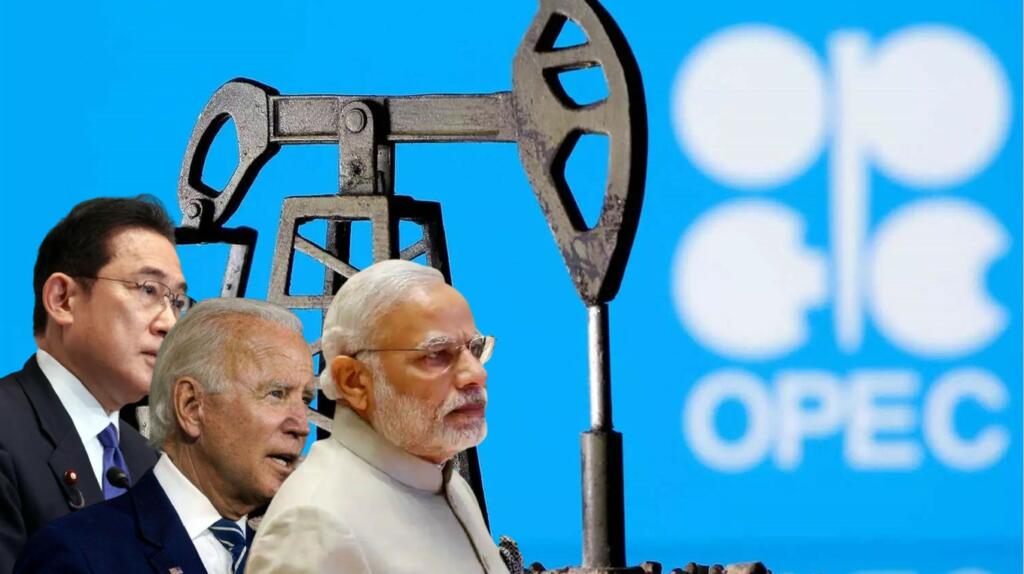In the last few months, oil prices have skyrocketed, but the OPEC+ cartel, which controls the supply (thus prices), is not ready to increase the production. This has forced some of the largest oil importers like India, Japan, and United States to come together and threaten the oil producer countries to increase production.
“We found ourselves in an energy crisis,” Amos Hochstein, the top U.S. energy diplomat, said this week, reflecting a view broadly held by big oil-consuming nations. “Producers should ensure that oil markets and gas markets are balanced.”
China, the world’s largest energy importer, has not made any public statements yet because it is negotiating geo-strategic matters with OPEC countries, but the Chinese importers are also putting heavy pressure on OPEC+, especially the Middle Eastern countries, to increase the production.
India:
India is so irked with the rising oil prices – which have already touched 80 dollars per barrel and may cross 100 dollars very soon – that it plans to negotiate a joint deal for all of its importer companies.
India, the world’s third-largest oil importer and consumer, is a major market for the OPEC countries. However, so far, all the private and government-owned refiners used to negotiate the purchase deals from the Middle Eastern oil-producing countries separately, thus the negotiation power was less. Now the bulk import orders will be negotiated with active involvement from the government to ensure that Indian refiners get the best deal.
“The companies can form joint strategies and they can even go for joint negotiations wherever possible,” Tarun Kapoor, the oil Secretary to the Government of India said.
Last time Indian players jointly negotiated oil prices with Iran and got a very good deal, but after the prices slipped, the strategy was junked. Now as the oil prices skyrocket once again because the cartel is yet to increase the production, the Indian government is looking for joint negotiation to reduce the import bill and get a better deal.
Japan:
The Japanese “government is currently asking oil-producing countries to increase production in the Middle East,” according to Tsutomu Sugimori, chairman of the Petroleum Association of Japan. “As the petroleum industry, we hope oil-producing countries, including OPEC, will take appropriate steps so as not to hinder a full-fledged recovery of the world’s economy.”
United States:
American diplomats are coordinating with oil purchasing countries to pressurise the oil producer companies to increase production. “Our view is that the global recovery should not be imperiled by a mismatch between supply and demand,” Sullivan said onboard Air Force One while enroute to Rome for this week’s Group of 20 summit. “And action needs to be taken,” he said, revealing that American diplomats were in touch with “the largest consuming countries in the world to include China as well as India, Japan, Korea, the Europeans, and others.”
So far, only India (and sometimes China) used to complain about the power of the OPEC cartel but now almost all countries are feeling the heat. And with the buyers ganging up against the cartel, it will be forced to give in.
India is consistently reducing its import from Middle Eastern countries by focusing on North American and South American countries. Within the last seven years of the Modi government, the import from Middle Eastern countries reached 70 per cent from around 85 per cent.
The West Asian OPEC members also charge ‘Asia Premium’ (higher price for shipments to Asian buyers), which is also a reason for discontent among Asian oil-importing countries. According to Prof Yoshiki Ogawa of Japan, the Asian Premium annually costs somewhere around $5-10 billion for Asian importers.
India had earlier tried to unite the oil-importing countries two times during the UPA era, but nothing fruitful came out of those meetings. Now with the Modi government at the helm of affairs, we could expect a positive result from the ‘oil buyer’s club’, which will help the country save money on oil imports.
Oil import is a major problem for India, accounting for the loss of huge foreign exchange reserves, and the Modi government is trying to solve this with this two-pronged strategy to increase clean energy generation and negotiate a better deal from OPEC countries.
